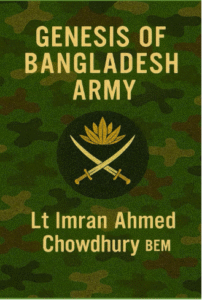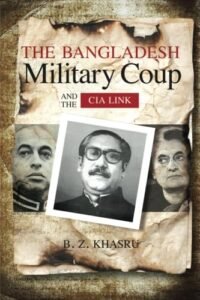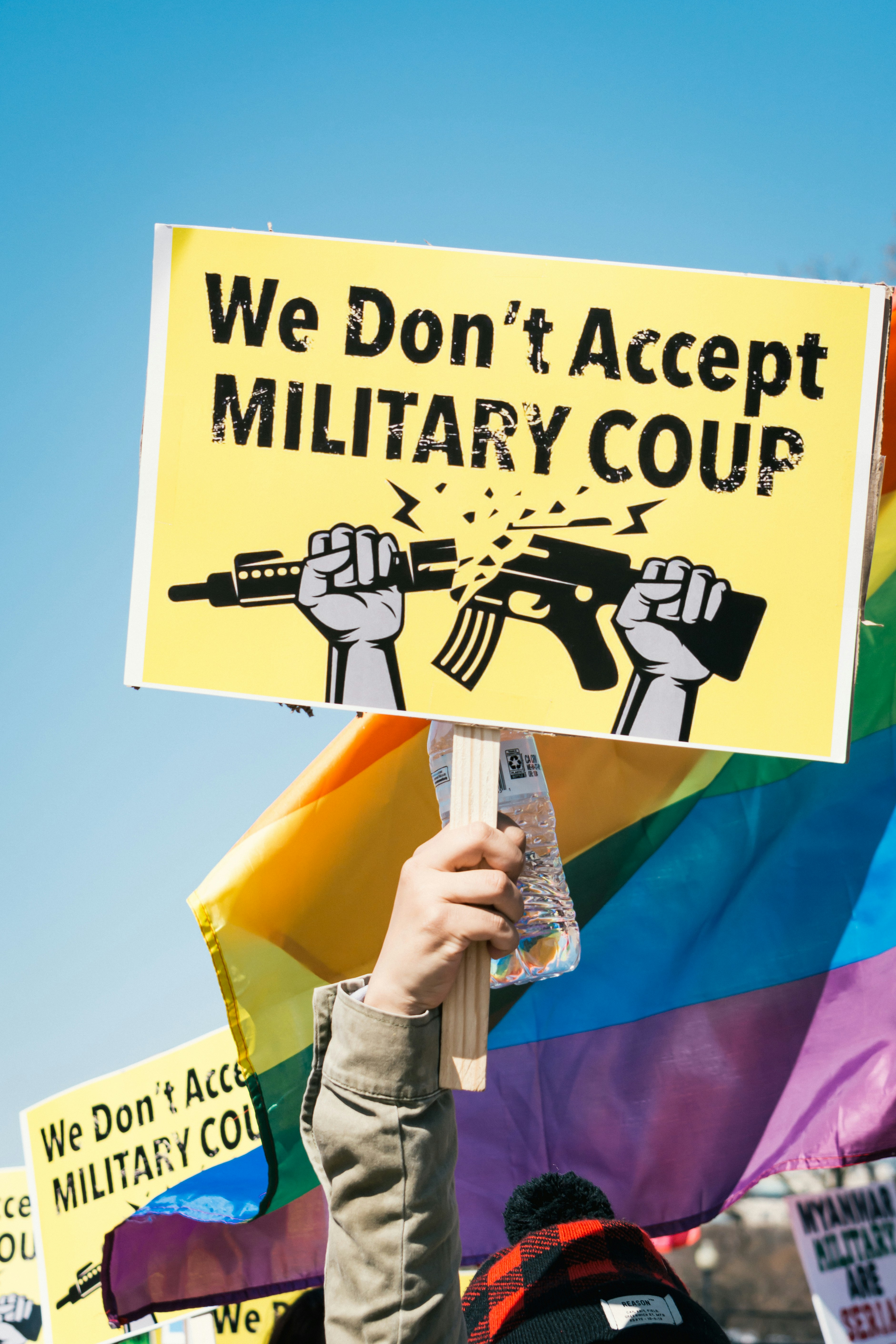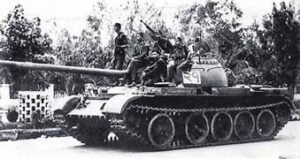Introduction to Military Coups in Bangladesh
The concept of military coups d’état refers to the abrupt and often violent overthrow of a government by military forces. In the context of Bangladesh, the history of such coups is intricately linked to the political instability that has characterised the nation since it gained independence in 1971. Following its liberation from Pakistan, Bangladesh faced numerous challenges, including a lack of political cohesion and widespread corruption, which often led to a political vacuum.
From 1975 to 2007, Bangladesh experienced a series of military interventions that disrupted its democratic processes. The role of the military has been a prominent factor throughout this tumultuous period. The power struggles among political factions, coupled with economic difficulties, created an environment where the military frequently felt compelled to intervene. The first significant coup occurred in 1975, marking the beginning of an era defined by military dominance in Bangladeshi politics.
Historically, the military’s involvement in governance has presented a double-edged sword for the nation. On one hand, military leaders argue that such interventions are necessary to restore order and stability in times of crisis. On the other hand, these actions have often resulted in the suspension of democratic processes, human rights abuses, and prolonged periods of authoritarian rule. Over the decades, various military regimes have risen to power, each leaving a distinctive imprint on the political landscape of Bangladesh.
This complicated interplay between politics and military authority set the stage for multiple coups, each further entrenching the military’s influence in governance. Examining the historical context of these military coups sheds light on the persistent volatility in Bangladesh’s political system and the critical role that the armed forces have played during various crises. Understanding this historical background is essential for analyzing the subsequent coups and their implications for the nation’s future.
The First Coup: 1975 and Its Implications
The first military coup in Bangladesh occurred on August 15, 1975, against the backdrop of a turbulent political landscape. Following independence in 1971, the country was striving to establish a functioning democracy while grappling with the devastating impacts of war, economic instability, and political fragmentation. Sheikh Mujibur Rahman, the founding leader and Prime Minister, faced significant opposition and discontent within various sectors of society due to food shortages, political dissent, and governance challenges. The political climate was charged with expectations for reform, which created fertile ground for coup planning among disenchanted military factions.
The coup itself was executed during the early hours of the morning, leading to a swift and violent usurpation of power. In a calculated move, a group of junior army officers stormed the presidential residence, resulting in the assassination of Sheikh Mujibur Rahman and several members of his family. This event marked a pivotal shift in Bangladesh’s political trajectory, as it not only dismantled the fledgling democratic framework but also introduced the military as a dominant force in governance. The ensuing chaos allowed for the appointment of a military government led by Colonel Abu Taher, indicating a departure from civilian rule.
The implications of the 1975 coup were profound and far-reaching. The immediate aftermath saw the establishment of martial law, with the military consolidating power and curtailing civil liberties. Political parties were banned, and dissent was met with severe repression, leading to an atmosphere of fear and uncertainty. This period also transformed the governance structures, fostering an environment where future military interventions became more conceivable. The events of 1975 set a precedent in the political discourse of Bangladesh, influencing the nature of civil-military relations and establishing a recurring pattern of instability that would haunt the nation’s landscape for decades to follow.
The Role of Major General Ziaur Rahman
Major General Ziaur Rahman emerged as a pivotal figure in the political landscape of Bangladesh following the coup d’état in 1975. Initially appointed as the Chief of Army Staff, Zia’s influence quickly extended beyond military ranks to the political arena, marking a significant transition in the governance of the country. After the assassination of Sheikh Mujibur Rahman, the founding leader of Bangladesh, Zia capitalized on the ensuing power vacuum. He aligned himself with prominent military leaders and assumed the presidency in 1977, effectively consolidating his authority.
One of Ziaur Rahman’s notable contributions was his focus on stabilizing an unstable nation. His administration implemented several key political changes aimed at fostering national unity and economic development. For instance, he established the Bangladesh Nationalist Party (BNP) in 1978, which garnered substantial public support and shifted the political dynamics away from the Awami League. These developments marked the beginning of a new era in Bangladeshi politics, one characterized by party-based electoral competition.
Zia’s leadership style was marked by pragmatism and a strong inclination towards authoritarian rule. He took significant steps to curb dissent, strengthen military control over civilian affairs, and suppress opposition. His approach often led to accusations of human rights abuses, yet he also instilled a sense of nationalism, promoting the idea of a secular yet politically independent Bangladesh. Internationally, Zia navigated complex foreign relations, particularly during the Cold War, seeking partnerships with both Western and regional powers.
Through a combination of military strength and political strategy, Major General Ziaur Rahman played a critical role in shaping the trajectory of Bangladesh from 1975 to 1981. His government paved the way for subsequent political developments, making a lasting impact on the nation’s governance and identity.
The Second Coup: 1982 and Military Rule
The second coup in Bangladesh’s military history occurred on March 24, 1982, led by General Hussain Muhammad Ershad. This event was catalyzed by a backdrop of political instability and civic unrest, which had been prevalent throughout the late 1970s and early 1980s. The government of President Abdus Sattar was perceived as ineffective in addressing the growing socio-political issues facing the nation, which, in turn, set the stage for Ershad’s military intervention.
Upon seizing power, Ershad established a military government and declared martial law. His ascent to the presidency marked a significant shift in governance characterised by an intention to consolidate military influence over the political landscape. General Ershad sought to legitimise his rule, initially presenting himself as a leader who would restore order, stability, and economic growth. He also emphasised the need for modernisation within the armed forces, touting ambitious developmental projects aimed at bolstering the country’s infrastructure and socio-economic status.
Political Party Dynamics During Military Regimes
The interaction between political parties and military regimes in Bangladesh from 1975 to 2007 illustrates a complex interplay that significantly influenced the country’s political landscape. Central to this dynamic were two major political entities: the Awami League and the Bangladesh Nationalist Party (BNP). Each party navigated the turbulent waters of military interventions in distinct ways, shaping their strategies and actions in the wake of coups.
Following the 1975 coup, led by Major General Ziaur Rahman, the political environment was heavily influenced by the military’s inclination to consolidate power. The Awami League, which had been pivotal in the country’s independence, faced suppression under this regime. The party adopted a strategy of temporary retrenchment, regrouping its members and often relying on public sentiment against the military rule. This period highlighted their resilience, as they effectively used grassroots campaigning to remain relevant in the public consciousness.
In contrast, the BNP sought to legitimise military rule by participating in elections, aiming to present the regime as a necessary stabilising force. Zia’s government was characterised by a significant shift in governance that promoted the BNP as a ruling party while marginalising opposition entities like the Awami League. The BNP’s alliance with the military underscored a pragmatic approach to political survival, albeit at the cost of democratic integrity.
The political landscape continued to evolve, particularly during the 1990s and early 2000s, marked by continuous rivalry between these two parties amidst cycles of military involvement. The Awami League re-emerged as a formidable force, uniting under a banner of democratic restoration, especially following the end of military rule. The manoeuvres between these political factions and their responses to military coups contributed to an ongoing cycle of instability and resistance in Bangladesh, ultimately shaping the political narrative leading up to the end of this tumultuous era in 2007.
International Response to the Coups
The military coups d’état in Bangladesh from 1975 to 2007 elicited varied responses from the international community, influenced mainly by geopolitical interests and regional dynamics. Initially, the global reaction was characterised by a degree of ambivalence. For instance, major powers such as the United States and China had significant strategic interests in South Asia, which led them to adopt positions that prioritised stability over democratic governance. The U.S., particularly during the Cold War era, often supported regimes that aligned with its geopolitical aspirations, even when those regimes were military in nature.
Neighbouring countries also played crucial roles in shaping responses to these military regimes. India, which shares historical and cultural ties with Bangladesh, took a more critical stance against military rule, emphasising the importance of democratic governance. However, India’s stance fluctuated based on its own national security concerns, particularly regarding relations with Pakistan and the impact of instability in Bangladesh on its northeastern provinces.
As the regimes shifted, so too did foreign aid and assistance. The international community began to reassess its diplomatic and financial support, often conditioning aid on improvements in human rights and a return to democratic principles. For example, post-coup periods frequently saw a temporary freeze on specific forms of assistance, reflecting displeasure with the military takeovers. Multilateral organisations, such as the United Nations, also expressed concerns, highlighting the need for a return to civilian rule and democratic processes. This sentiment was echoed in various international forums, marking a shift toward prioritising human rights and governance in international relations.
In conclusion, the international response to the military coups in Bangladesh was multifaceted, shaped by the geopolitical considerations of the time as well as the evolving dynamics of regional politics and global human rights advocacy.
The Return to Democracy: 1990-2007
The period from 1990 to 2007 marked a significant transition in Bangladesh, as the nation witnessed a collective movement to restore democracy after years of military rule. This era was notably characterised by widespread public protests against the authoritarian regime led by Hussain Muhammad Ershad, who had assumed power following a coup in 1982. The culmination of public dissent, galvanising popular discontent, effectively pressured Ershad to resign in December 1990. This resignation symbolised a critical juncture in Bangladesh’s political landscape and paved the way for a democratic transition.
Following Ershad’s exit, the country embarked on the re-establishment of democratic institutions, with the restoration of a multiparty political system. The newly reinstated democracy, however, faced considerable hurdles as the nation grappled with deeply entrenched political rivalries and violence. Political parties, notably the Awami League and the Bangladesh Nationalist Party (BNP), became embroiled in conflicts that manifested in frequent clashes, undermining the stability of the democratic framework. Allegations of election rigging and widespread fear of retribution from opposing factions exacerbated these challenges.
The 1991 parliamentary elections ushered in a fragile governance structure, but subsequent political turmoil persisted, as issues of governance, corruption, and human rights violations plagued leaders and institutions. The electorate’s oscillation between the Awami League and the BNP illustrated the contentious nature of Bangladeshi politics in this era. Significant events, such as the 1994 and 1996 elections, were marred by accusations of voter suppression, protests, and widespread unrest. Despite these challenges, the return to democracy was a pivotal step for Bangladesh, serving as a foundation for ongoing struggles for political stability and the protection of democratic rights in the years leading up to 2007.

The Impact of Coups on Bangladesh’s Development
The military coups that occurred in Bangladesh between 1975 and 2007 had profound and lasting effects on the nation’s socio-economic landscape. These interruptions in democratic governance prompted significant shifts in both economic growth and social stability, ultimately shaping the trajectory of the country’s development. Following the 1975 coup, Bangladesh experienced a series of military regimes that prioritised short-term stability and control over long-term development considerations. This focus often hindered the implementation of effective economic policies, leading to stagnation in various sectors.
One key consequence of military rule was the disruption of civil institutions that traditionally supported economic progress. The expulsions and replacements of experienced bureaucrats and professionals diminished the effectiveness of governance, leading to the misallocation of resources and declining public services. Consequently, the agricultural sector, which serves as the backbone of the Bangladeshi economy, faced challenges due to inconsistent policies and a lack of support for farmers. This inefficiency manifested as lower productivity, significantly impeding the potential for economic growth.
Furthermore, social stability was undermined by state violence and repression against dissent. These actions alienated large segments of the population, leading to political polarisation and societal unrest. The chronic instability fueled by military interventions contributed to an uncertain business environment, discouraging both local and foreign investment. As a result, Bangladesh struggled to attract the funding needed for infrastructure and development projects, which are crucial to economic advancement.
Despite some periods of economic growth, the overarching impact of military coups on Bangladesh’s development trajectory was detrimental. The legacies of military rule manifested in weakened democratic institutions and persistent socio-economic challenges that continue to influence the nation’s path today.

Lessons Learned and Future Implications
The military coups d’état in Bangladesh between 1975 and 2007 serve as a pivotal chapter in the nation’s political history, encapsulating significant lessons about governance and civil-military relations. One of the primary lessons gleaned from these events is the critical importance of consolidating democratic governance. Each coup brought about the suspension of democratic processes, leading to a cycle of instability that undermined civilian authority. This underscores the need for robust mechanisms to support democratic institutions and to ensure that governance remains firmly in the hands of elected representatives.
Furthermore, the role of civil society has emerged as a fundamental component in safeguarding democracy. The involvement of various civil society organisations during and after these coups has demonstrated the effectiveness of grassroots movements in advocating for political accountability and transparency. The cultivation of an engaged and informed citizenry is essential for resisting authoritarian tendencies and promoting democratic values. As Bangladesh continues to evolve politically, the strengthening of civil society can act as a counterbalance to any future military interventions.
In the context of future political stability, the lessons from past military actions imply that both domestic and international stakeholders must prioritise sustained dialogue and cooperation. Greater emphasis on political inclusivity and reconciliation among various political factions can mitigate the risks associated with political polarisation. Additionally, the international community should remain vigilant and supportive of democratic processes in Bangladesh, recognising the intrinsic value of a stable and democratic state for regional security. Implementing these lessons learned could significantly reduce the likelihood of future coups and promote a more stable political landscape, ultimately contributing to the nation’s progress and development.



